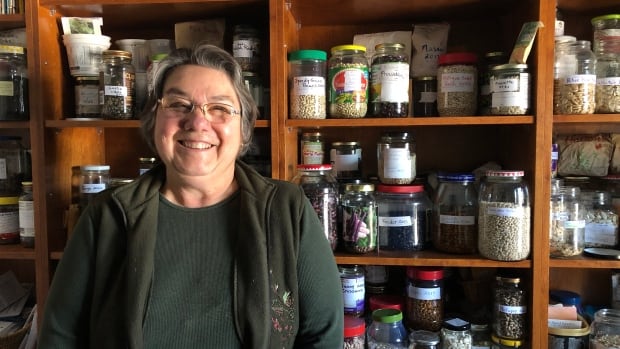
Saving seeds and growing food close to home on P.E.I.
CBC
Tina Davies has an entire room in her house dedicated to seeds.
Glass jars line the wall, and there are plenty of seed packets around.
Davies and her husband Arthur are the co-founders and currently the only members of the P.E.I. Seed Alliance.
They estimate they have seeds from more than 1,000 varieties of plants, including more than 100 types of tomatoes, dozens of different beans, and several rare squashes.
Each seed has been carefully adapted to P.E.I.'s climate and growing conditions, Davies said.
"They start to adapt over the years. And they will grow in colder temps. And we have to worry now with the heat in the summer. We've had a few really hot summers and some varieties I used to grow just can't stand the heat," she said.
"And so ... you just trial them and see which ones aren't lost to insects, which ones can stand both heat and cold. And there's a lot that are really resilient."
The seeds come from all across Canada — everything from beans, peas and bell peppers to spinach, melons and zucchini.
Some are being grown for pest resistance, others for cold- or heat-tolerance.
Once the first crop is grown, Davies dries and saves the seeds.
"You put them in a strainer and wash them and then you lay them out and dry them. And then you store them in jars for the winter," she said.
Davies packages seeds each week to be mailed out, dropped off locally, or sold at the Summerside Farmers' Market.
The Cooper Institute, located at Charlottetown's Voluntary Resource Council, is one of the pickup points for seeds.
Institute program co-ordinator Ann Wheatley said seed-saving is about empowering people to take control over the food system.





















 Run 3 Space | Play Space Running Game
Run 3 Space | Play Space Running Game Traffic Jam 3D | Online Racing Game
Traffic Jam 3D | Online Racing Game Duck Hunt | Play Old Classic Game
Duck Hunt | Play Old Classic Game